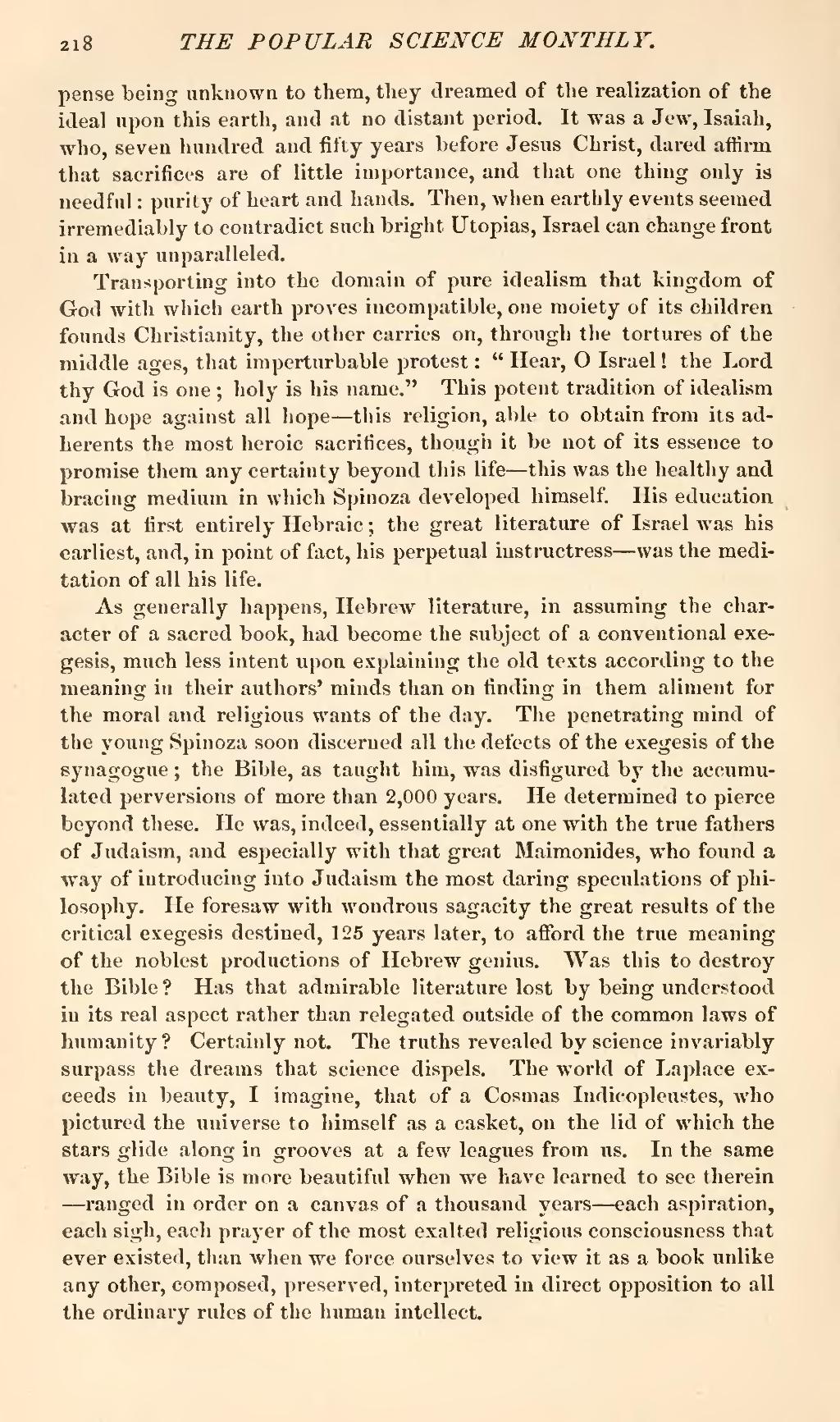pense being unknown to them, they dreamed of the realization of the ideal upon this earth, and at no distant period. It was a Jew, Isaiah, who, seven hundred and fifty years before Jesus Christ, dared affirm that sacrifices are of little importance, and that one thing only is needful: purity of heart and hands. Then, when earthly events seemed irremediably to contradict such bright Utopias, Israel can change front in a way unparalleled.
Transporting into the domain of pure idealism that kingdom of God with which earth proves incompatible, one moiety of its children founds Christianity, the other carries on, through the tortures of the middle ages, that imperturbable protest: "Hear, O Israel! the Lord thy God is one; holy is his name." This potent tradition of idealism and hope against all hope—this religion, able to obtain from its adherents the most heroic sacrifices, though it be not of its essence to promise them any certainty beyond this life—this was the healthy and bracing medium in which Spinoza developed himself. His education was at first entirely Hebraic; the great literature of Israel was his earliest, and, in point of fact, his perpetual instructress—was the meditation of all his life.
As generally happens, Hebrew literature, in assuming the character of a sacred book, had become the subject of a conventional exegesis, much less intent upon explaining the old texts according to the meaning in their authors' minds than on finding in them aliment for the moral and religious wants of the day. The penetrating mind of the young Spinoza soon discerned all the defects of the exegesis of the synagogue; the Bible, as taught him, was disfigured by the accumulated perversions of more than 2,000 years. He determined to pierce beyond these. He was, indeed, essentially at one with the true fathers of Judaism, and especially with that great Maimonides, who found a way of introducing into Judaism the most daring speculations of philosophy. He foresaw with wondrous sagacity the great results of the critical exegesis destined, 125 years later, to afford the true meaning of the noblest productions of Hebrew genius. Was this to destroy the Bible? Has that admirable literature lost by being understood in its real aspect rather than relegated outside of the common laws of humanity? Certainly not. The truths revealed by science invariably surpass the dreams that science dispels. The world of Laplace exceeds in beauty, I imagine, that of a Cosmas Indicopleustes, who pictured the universe to himself as a casket, on the lid of which the stars glide along in grooves at a few leagues from us. In the same way, the Bible is more beautiful when we have learned to see therein—ranged in order on a canvas of a thousand years—each aspiration, each sigh, each prayer of the most exalted religious consciousness that ever existed, than when we force ourselves to view it as a book unlike any other, composed, preserved, interpreted in direct opposition to all the ordinary rules of the human intellect.

